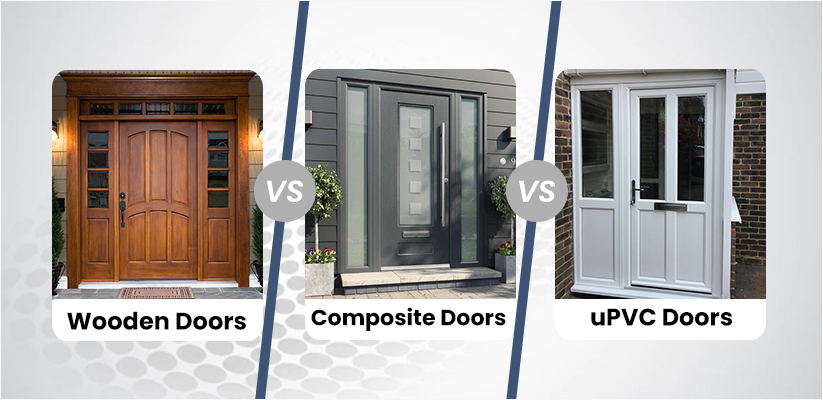
When it comes to choosing a door for your home, there are a lot of options to consider. UPVC and composite doors are two of the most commonly used materials for doors today. Both materials offer great features and benefits, but what’s the difference? There are some important differences between them that should be considered before making a purchase. This article will explore the key differences between UPVC and composite doors and help you decide which material is right for your needs.
Overview of UPVC and Composite Doors
UPVC stands for unplasticized polyvinyl chloride, and it is a rigid and strong form of plastic. It is most commonly used for windows, but it is also a popular choice for doors. UPVC doors are made of two sheets of UPVC that are welded together around a foam core. They are known for their strength and durability, and they are resistant to weather, water, and pests.
Composite doors are made from a combination of materials, including wood, polyurethane, and glass reinforced plastic. They are strong and durable, and they are known for their resistance to weather, water, and pests. Composite doors are also available in a wide range of styles, which makes them a popular choice for both residential and commercial applications.
Differences in Durability
UPVC doors are known for their strength and durability, and they are highly resistant to weather, water, and pests. They are also low maintenance, and they will not require any painting or staining. However, UPVC doors can be damaged by UV light from the sun, and they may require occasional repairs or replacements.
Composite doors are just as strong and durable, but they are less resistant to UV light from the sun. They may need to be painted or stained periodically to maintain their appearance. Composite doors are also more expensive than UPVC doors, so they may not be an option for some budgets.
Differences in Maintenance
UPVC doors are low maintenance and require little to no painting or staining. They can be cleaned with a mild detergent and water, and they may need to be polished periodically to keep them looking their best.
Composite doors require more maintenance than UPVC doors, and they may need to be painted or stained periodically to maintain their appearance. They can be cleaned with a mild detergent and water, but they may require more frequent polishing than UPVC doors.
Differences in Cost
UPVC doors are typically less expensive than composite doors. They are also easy to install, which can help reduce installation costs. However, UPVC doors may require more frequent repairs or replacements due to their susceptibility to UV light from the sun.
Composite doors are more expensive than UPVC doors, but they are more resistant to UV light from the sun and may require less frequent repairs or replacements. They are also more customizable than UPVC doors, which can help reduce installation costs.
Differences in Aesthetics
UPVC doors come in a variety of styles and colors, and they are available in a wide range of sizes. They are also low maintenance, which makes them a popular choice for busy households.
Composite doors come in a variety of styles and colors, and they are available in a wide range of sizes. They are also more customizable than UPVC doors, which makes them a popular choice for homeowners who want to create a unique look for their home.
